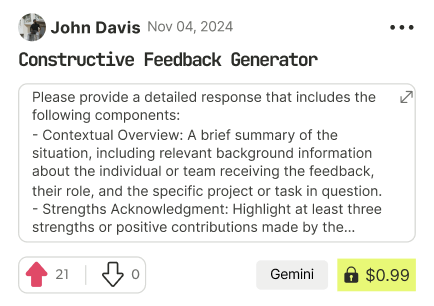prompt mine App
Find, Create & Share AI Magic
Contract Analysis: Non-Compete Clause Review
<Summary>
The provided non-compete clause raises significant concerns due to its broad scope, potentially unreasonable duration, and unilateral determination of what constitutes "competitive" activity. It requires careful scrutiny and negotiation.
</Summary>
<Red_Flags>
1. Overly Broad Geographic Scope: "anywhere within 100 miles of any company office, which could be anywhere in the world." This clause is potentially unenforceable. A 100-mile radius around any company office globally is excessively restrictive and likely goes beyond protecting legitimate business interests. Risk: Limits future employment opportunities significantly. Recommendation: Negotiate a specific, reasonable geographic scope tied to your actual role and business activities, such as the city/state where you primarily worked, or where you had direct client relationships.
2. Unreasonable Duration: "three years after leaving." Three years is a lengthy restriction, especially if the company's confidential information quickly becomes obsolete. Risk: Prolonged unemployment or forced career change. Recommendation: Argue for a shorter, more reasonable period, typically 6-12 months, reflecting the lifespan of confidential information and the time needed to train a replacement.
3. Vague Definition of "Competitive": "they get to decide what's 'competitive.'" This allows the company to arbitrarily define what activities are prohibited, leaving you vulnerable. Risk: Prevents you from accepting jobs that aren't truly competitive but are deemed so by the company. Recommendation: Insist on a clear, objective definition of "competitive," specifying the types of businesses or roles that are prohibited. Example: "Competitive business shall mean a company deriving more than 50% of its revenue from [specific product/service area] and directly soliciting the Company's clients within [defined territory]."
4. Unilateral Power: The company's sole discretion in defining "competitive" and potentially enforcing the non-compete puts you at a disadvantage. Risk: Potential for abuse and subjective interpretation leading to legal disputes. Recommendation: Seek to include a clause requiring mutual agreement or third-party arbitration to determine competitiveness.
</Red_Flags>
<Missing_Elements>
Consideration: While not explicitly stated, the contract should clearly outline the consideration (benefit) you receive in exchange for agreeing to the non-compete. This is crucial for enforceability.
Exceptions: The clause lacks exceptions for activities that don't genuinely harm the company.
Choice of Law/Venue: Specifying which state's laws govern the contract and where disputes will be resolved.
</Missing_Elements>
<Recommendations>
1. Consult with an attorney: This non-compete clause is highly restrictive. Obtain professional legal advice before signing. An attorney can assess the enforceability of the clause in your specific jurisdiction and help you negotiate better terms.
2. Negotiate aggressively: Push back on the geographic scope, duration, and definition of "competitive." Document your negotiation efforts.
3. Clarify consideration: Ensure the contract clearly states what you are receiving in exchange for the non-compete.
4. Research enforceability: Understand how non-compete agreements are treated in your state or jurisdiction. Some states are more favorable to employees.
</Recommendations>
<Disclaimer>
This analysis is for informational purposes only and does not constitute legal advice. It is essential to consult with a qualified attorney in your jurisdiction to review the entire contract and advise you on your specific legal rights and obligations. This review is generalized and may not account for specific state or local laws that may apply.
</Disclaimer>

Contract Analysis: Non-Compete Clause Review


Find Powerful AI Prompts
Discover, create, and customize prompts with different models, from ChatGPT to Gemini in seconds

Simple Yet Powerful
Start with an idea and use expert prompts to bring your vision to life!